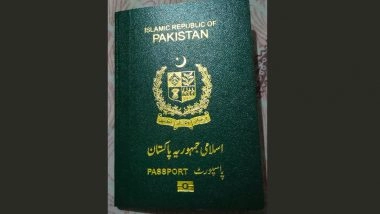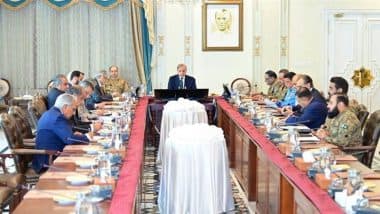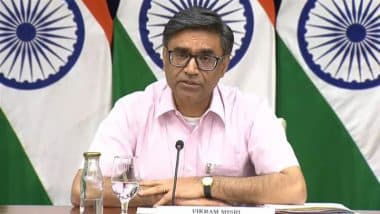Delhi, April 24: The Cabinet Committee on Security (CCS), chaired by Prime Minister Narendra Modi on April 23, convened to address the fallout of the deadly terror attack in Pahalgam, Jammu and Kashmir, which claimed the lives of 26 civilians. The meeting resulted in a comprehensive five-point action plan designed to respond decisively to the attack. Among the measures, the suspension of the SAARC Visa Exemption Scheme (SVES) for Pakistani nationals stood out, with a 48-hour deadline given for those in India to leave. India also announced the closure of the Attari-Wagah border, suspension of the Indus Waters Treaty, and the expulsion of Pakistani military advisors stationed in India.
The plan further includes a significant reduction in the number of diplomatic staff at India’s High Commission in Islamabad. These stringent actions underline India’s commitment to zero tolerance for terrorism and a robust stance against cross-border violence. The meeting was attended by 11 key security officials and ministers, including PM Modi, Home Minister Amit Shah, Defence Minister Rajnath Singh, External Affairs Minister Dr S Jaishankar, and National Security Advisor Ajit Doval, among others. Pahalgam Terror Attack: From Indus Water Treaty's Suspension To Border Closure and Visa Cancellation, List of India's 5 Big Measures Against Pakistan.
Among the key actions, the suspension of the SAARC Visa Exemption Scheme has immediate implications for Pakistani nationals in India. Let’s know what the SAARC visa exemption scheme is and what will happen to Pakistani nationals staying in India under SVES after the Pahalgam terror attack?
What is the SAARC Visa Exemption Scheme?
The SAARC Visa Exemption Scheme (SVES) was introduced in 1992 by the South Asian Association for Regional Cooperation (SAARC) to promote regional cooperation and ease travel among its member nations: India, Pakistan, Bangladesh, Sri Lanka, Nepal, Bhutan, the Maldives, and Afghanistan. The scheme allowed selected individuals from these countries, including government officials, judges, parliamentarians, journalists, and business leaders, to travel freely across member states without needing a visa. These individuals were issued a special SAARC Visa Exemption Sticker, valid for one year, and affixed to their passports, enabling multiple entries without the need for conventional visa formalities. Seema Haider To Be Sent Back to Pakistan? Speculations Rife After India Cancels SAARC Visa Exemption Scheme for Pakistani Nationals in Response to Pahalgam Terror Attack.
The idea originated from the 1988 SAARC Summit in Islamabad, with the goal of strengthening diplomatic ties, enhancing cultural exchanges, and fostering economic cooperation. The SVES covered 24 specific categories of people and required immigration authorities in each country to periodically review and update eligibility lists. Although Nepal and Bhutan citizens did not need a visa to enter India, the scheme held particular significance for Pakistani nationals, who were otherwise subject to stringent travel regulations. SVES served as a diplomatic tool, especially during times of strained relations, allowing limited but structured people-to-people contact.
What Will Happen to Pakistani Nationals Staying in India Under SVES?
Following the suspension of the SAARC Visa Exemption Scheme (SVES) in the aftermath of the Pahalgam terror attack, all Pakistani nationals currently in India under this scheme have been directed to leave the country within 48 hours. This decision, announced during the April 23 CCS meeting, nullifies all previously issued SVES stickers for Pakistani citizens, effectively revoking their legal right to remain in India. The move impacts diplomats, journalists, business delegates, and other officials who were in the country under this special exemption.
Those affected are expected to exit India through the Attari-Wagah border, which has been temporarily kept open for their return until May 1. After this deadline, any Pakistani nationals found remaining under the now-defunct SVES framework may face legal and immigration consequences, including deportation. This marks the first time India has fully revoked the SVES for a specific SAARC member state, signalling a decisive end to one of the last remaining diplomatic access points between the two nations amidst rising security concerns.
(The above story first appeared on LatestLY on Apr 24, 2025 12:26 PM IST. For more news and updates on politics, world, sports, entertainment and lifestyle, log on to our website latestly.com).













 Quickly
Quickly






















